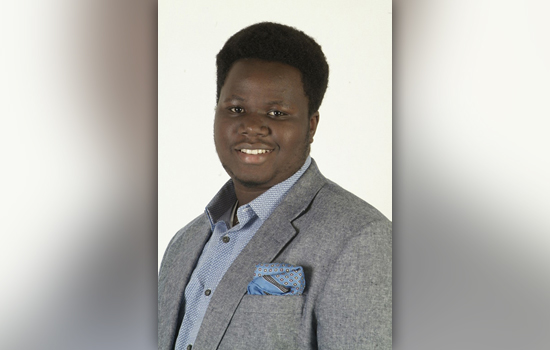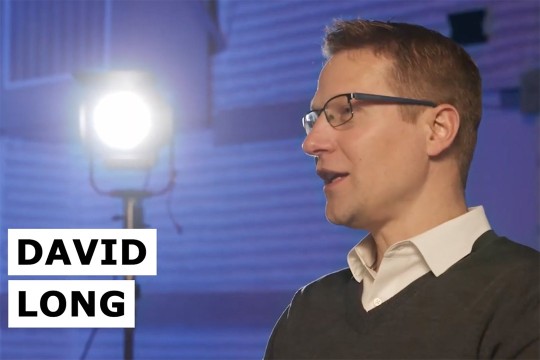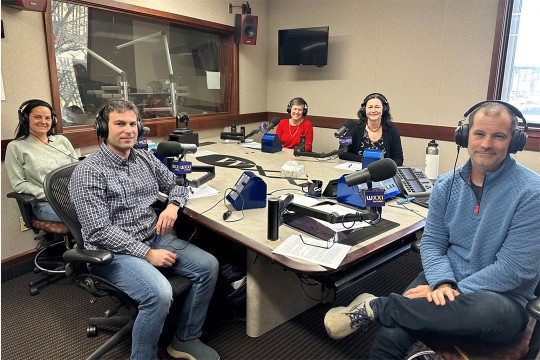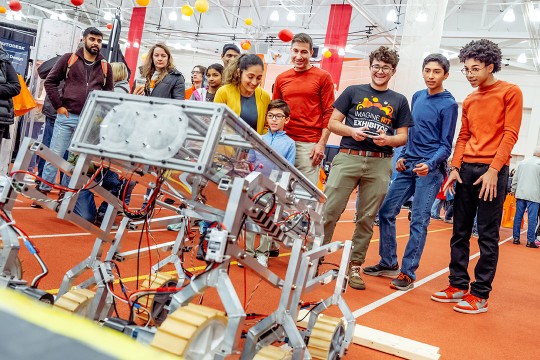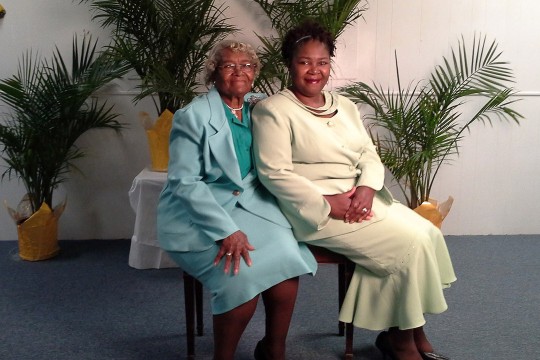McNair Scholar hopes to give back to homeland
Student SpotlightEnock Ntekereze, third-year international global studies student
Enock Ntekereze
Enock Ntekereze is a refugee from East Africa who came to Rochester at age 13 with his parents and six siblings. He attended Monroe Community College for two years before transferring to RIT last fall to major in international global studies with minors in finance and international relations. Ntekereze is part of the McNair Scholars Program and is doing research on extremist groups attempting to radicalize youths from his homeland.
Question: What brought you to RIT?
Answer: I looked at other colleges but I was encouraged when I came to RIT because there is support here for African Americans and they really open the door to explore new opportunities. If you want to learn, RIT is the place to be—but the winter is a challenge; I never thought it could be so cold.
Q: Why did you decide to pursue a degree in international global studies?
A: My grandparents were killed in the Burundi Genocide in 1972 and my family became refugees in Rwanda, where I was born, and then moved to Tanzania before we were granted asylum in the U.S. I want to go to grad school for international development because my goal is to help improve the economy in Africa.
Q: What is the McNair Scholars Program?
A: Once you are a McNair Scholar, you are one for life, and it is for African American and underrepresented students who are interested in pursuing advanced degrees including doctoral studies, which I fully intend to do. It helps ease the burden of books, housing, meals, but it also has a 10-week summer program where I was able to work on my research.
Q: What kind of research have you been involved in?
A: I always want to learn more about what’s happening at home. For instance, in Somalia, 70 percent of the population is children and young adults ranging in age from 14 to 30. They are often targeted by radical groups that try to influence them to cause unrest in government and military operations. So my goal is to better understand how these radical groups work and help my country stop this from happening.
Q: Are you currently doing an internship?
A: Yes, I have been accepted as an intern on the Enough Project, and after training in Washington, D.C., I will be a campus organizer for this group at RIT starting in the fall. The project is about helping to prevent crimes of atrocity and genocide in the Sudan and Congo.
Q: What is your greatest challenge?
A: It has been my language barrier. It took me about six months to learn to speak the English language so people could understand me and I could understand them. And unlike other students in the classroom, I was unable to pick up a book and just start reading. I had to read each sentence and every paragraph multiple times to understand it.
Q: Do you have advice for other students?
A: Everyone has a fear of starting over, especially someone like myself who had language and cultural barriers as a refugee. But I am a very friendly person, and so I would say to new students to put a smile on your face and begin making new friends. We are all here to help and support each other.











